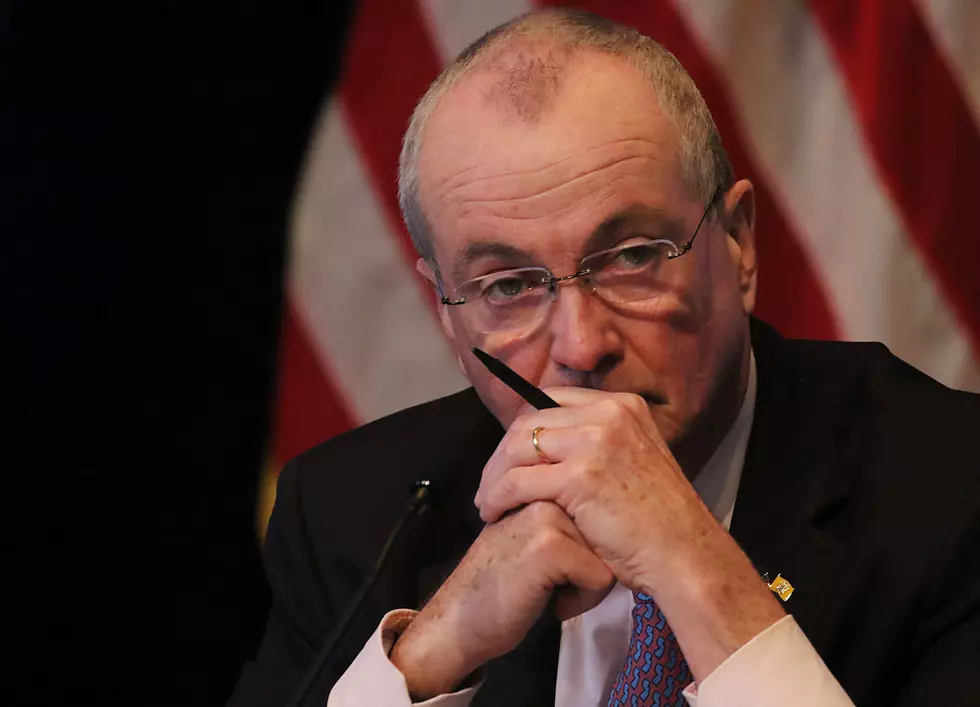
Murphy cuts or delays $5B in spending — no tax hikes, yet
TRENTON — Tax increases will not be part of the short-term solution for fixing the $2.8 billion revenue shortfall in New Jersey's current budget, according to an update provided to legislators Friday that calls for rebalancing state finances in the short term with spending cuts and deferrals.
No recommendations are being made yet for the 2021 budget, which faces a $7.3 billion revenue drop – or more, if a second wave of coronavirus infections comes as anticipated in the fall.
The Murphy administration is proposing more than $5 billion in spending changes, including $1.32 billion in de-appropriations, $3.2 billion in cut or delayed appropriations and the withdrawal of $850 million in proposed new spending Gov. Phil Murphy had put forth in February.
The elimination of proposed spending includes $336.5 million in school aid, which will mean smaller increases in 2020-21 aid for underfunded districts making gains under the school aid formula, and $50 million in stabilization aid to districts losing funds.
It also means the subsidy to NJ Transit won't increase by $132 million as planned.
State Treasurer Elizabeth Maher Muoio called the two-year revenue shortfall of around $10 billion "a jaw-dropping figure" and represents the biggest financial challenge since the Great Depression.
"There isn't going to be one easy solution. We will need a multifaceted approach. And it's going to require some tough decisions," Muoio said.
Muoio said the Murphy administration is proposing to de-appropriate approximately $1.32 billion in previously approved spending, most of which is on the $1.03 billion in spending that had already been put in reserve. Muoio said additional balances will be put in reserve.
As expected, the state has transferred the $421 million from its "rainy-day fund" surplus into the general fund. The $3.2 billion in short-term spending solutions include pushing some big September payments into October, including a $951 million pension payment, $717 million in K-12 aid and $355 million in municipal aid. That delays the verdict by a few months, until the 2021 state budget.
"Some extremely difficult decisions will have to be made in the weeks and months ahead, decisions no one wants to make. But they will be unavoidable," Muoio said. "Just like it will be for many New Jerseyans, our road ahead is going to require a combination of serious budget tightening, critically needed borrowing and federal assistance – much more robust federal assistance."
The update was required to be submitted to the Legislature by May 22, under the state law enacted last month that extended the tax filing deadline to July 15 and shifted the months of July, August and September from fiscal 2021 into fiscal 2020.
Murphy met Friday morning with the Democratic and Republican legislative leaders, in two separate meetings, in advance of the plan's public release. He called them "good, constructive, frank meetings."
"It is a stark report, and it lays out the fiscal crisis that looms right around the corner from our public health crisis," Murphy said.
"I have been clear since March that we are facing an unprecedented public health crisis that would soon be followed by a similarly unprecedented fiscal crisis," Murphy said. "Suffice it to say the hard choices I predicted are now at our doorstep."
Murphy said the state needs significantly more federal aid. He also reiterated his request for the Legislature to approve perhaps $5 billion or more in borrowing through the Federal Reserve, which the Assembly plans to vote on June 4.
"We've been approaching a fiscal cliff, but today we get our first glimpses over its edge. And it isn't pretty," Murphy said. "And we have two choices. We can toss our state into that abyss, or we can take measures that will allow us to slowly back away from that edge and keep our feet and solid ground. I certainly know the outcome I prefer, and I suspect overwhelmingly you prefer. And I hope that our Legislature and the leaders in Washington will join us."
On Thursday, the state Civil Service Commission relaxed rules to allow for voluntary furloughs of up to 90 days in lieu of layoffs and continue the employer contribution for those workers' health benefits, said Murphy's chief counsel, Matt Platkin.
"The state has not furloughed any workers to date. Obviously, given the revenue numbers that the treasurer has spoken about, I would say that we're actively in conversations and all options are on the table," Platkin said.

Muoio said the revenue outlook does not account for a second wave of coronavirus infections in the fall, as many public-health experts predict. If that comes to pass, the revenue forecast would decline by about $1 billion more, she said. Murphy noted the forecast also doesn't account for development of a vaccine or therapeutic treatment, which could help speed the return of economic activity and reduce the deficit.
Murphy is required to deliver a revised 2021 budget plan to the Legislature by Aug. 25. That fiscal year will be nine months long and begin Oct. 1.
More from New Jersey 101.5:
Views of the Jersey shore
Michael Symons is State House bureau chief for New Jersey 101.5. Contact him at michael.symons@townsquaremedia.com.
More From New Jersey 101.5 FM









